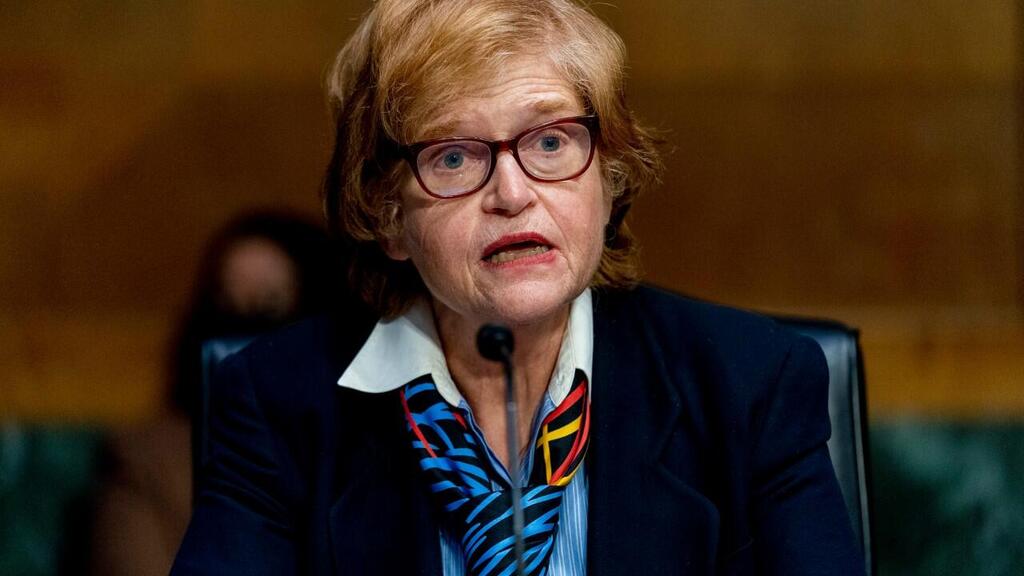The U.S. Senate, in a voice vote, unanimously confirmed Deborah Lipstadt, the Holocaust scholar who endured delays and a contentious hearing in her nomination, to be antisemitism monitor.
The vote, on late Wednesday, took mere seconds. “The ayes appear to have it,” Sen. Tammy Baldwin, the Wisconsin Democrat who was presiding over the session, said after calling for a vote. “The ayes do have it. The nomination is confirmed.” There were no “Nos.”
3 View gallery


U.S. Special Envoy to Monitor and Combat Antisemitism Deborah E. Lipstadt
(Photo: AP)
It was not clear from the C-Span video, which Georgia Democrat Jon Ossoff posted on his Twitter feed, how many senators were present for the vote to confirm Lipstadt to the State Department role.
Still, the fact that none of Lipstadt’s erstwhile Republican critics demanded debate or a headcount — actions that could have further delayed her nomination — was in sharp contrast to the procedural maneuvers Republicans used for months to delay her confirmation.
Ossoff introduced the motion to nominate Lipstadt in part because he represents Georgia, where Lipstadt teaches at Emory University, but he also noted his Jewish roots in his 4-minute speech.
3 View gallery


Jon Ossoff speaks to the media and supporters after he qualified to run in the Senate race against Republican Sen. David Perdue in Atlanta
(Photo: AP)
“It was U.S. forces who liberated Dachau and Buchenwald. And Annie and Israel, my great-grandparents, they got out of Europe,” Ossoff said. “Many of my family did not, Madam President, and they perished in the Holocaust. This isn’t ancient history. This is recent history. And right now as we speak, the scourge of antisemitism is rising again, in this country and around the world. If we mean the words ‘never again,’ then at long last Madam President, let’s confirm Deborah Lipstadt to fight antisemitism on behalf of the United States.”
Lipstadt is now the first antisemitism monitor to have the role of ambassador, under a law passed by Congress in 2020, which enhances her status overseas when she makes representations to foreign governments and allows her more direct access to the secretary of state and to the president should she come across a situation that she believes requires executive action.
3 View gallery


Then-prime minister Benjamin Netanyahu stands with then-U.S. president Donald Trump after signing the Abraham Accords, at the White House, September 2020
(Photo: Reuters)
The fact that the rank of ambassador means the role requires Senate confirmation subjected Lipstadt to scrutiny. Her sharp past criticisms of former President Donald Trump, and particularly of Wisconsin Republican Sen. Ron Johnson, led to delays and a contentious hearing in February. Only two Republicans on the Foreign Relations Committee joined Democrats earlier this week in advancing the nomination.
A broad array of Jewish and pro-Israel groups advocated on behalf of Lipstadt, including groups like the Orthodox Union and Christians United for Israel that maintain close ties with Republicans.
Lipstadt, 75, has been for years a go-to expert for the media and for legislators on Holocaust issues, particularly on how the genocide’s meaning should be understood in the 21st century, and whether it had any cognates among anti-democratic forces in the current day.

